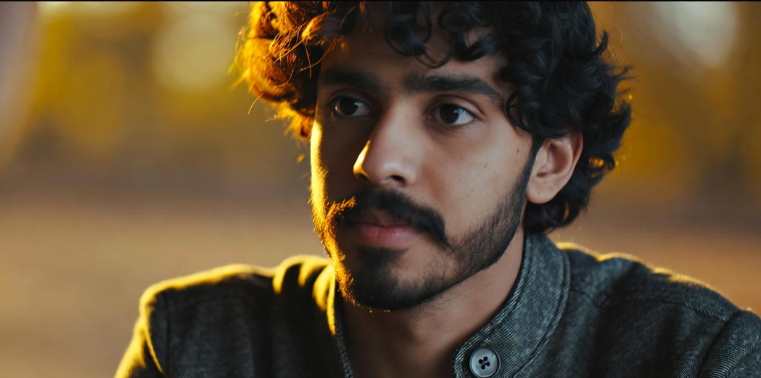Have you ever wondered what truly connects all human beings across time, culture, and geography? 🤔
Anthropology — the study of humans — helps us uncover those hidden threads that tie us all together. It’s not just about ancient bones or tribal rituals; it’s a fascinating story about who we are, where we came from, and what makes us human.
Let’s explore how anthropology opens a window into our shared humanity — in the most human, down-to-earth way possible.
Understanding Anthropology in Simple Words
Anthropology simply means “the study of humans.”
But it’s not just one field — it’s like a family with many branches. Each branch looks at humanity from a different angle.
| Branch | What It Studies | Example |
|---|---|---|
| Cultural Anthropology | Human cultures, beliefs, customs | Studying marriage traditions in India 🇮🇳 |
| Physical (Biological) Anthropology | Human evolution and biology | Comparing human DNA with that of chimpanzees 🧬 |
| Archaeology | Material remains of past societies | Studying ancient tools or pottery 🏺 |
| Linguistic Anthropology | Human languages and communication | Studying how language shapes thought 🗣️ |
| Social Anthropology | Human behavior in social settings | Observing how people live in communities 🏘️ |
Every one of these branches helps us see how different we appear, yet how deeply alike we truly are.
Our Origins Tell a Common Story
No matter where you live — Pakistan, Brazil, or Japan — your ancestors share one starting point: Africa.
Modern science and anthropology agree that all humans originated from Africa around 200,000 years ago.
This shared beginning means something powerful:
👉 We are all cousins, just separated by geography and time.
So when anthropology studies fossils, skulls, and genetic traces, it’s not just about old bones — it’s about telling the story of one big human family.
Culture: The Mirror of Humanity
Culture is like a mirror — it reflects our values, creativity, and survival skills.
Through anthropology, we learn that every culture, no matter how simple or complex, is meaningful.
Think about it:
-
Some people greet with a handshake 🤝
-
Others bow 🙇♀️
-
Some might even touch noses 👃 (like the Maori people in New Zealand!)
Different customs, one shared purpose — connection.
Anthropologists remind us that these cultural differences aren’t barriers — they’re beautiful variations of the same human instinct to belong and express.
Why Language Makes Us Human
Language is perhaps our most human tool.
Through it, we express love, anger, humor, and ideas. 💬
Linguistic anthropology shows that:
-
Languages shape how we see the world.
-
They carry our memories and identities.
-
Losing a language means losing a piece of humanity’s history.
For example, the word “Ubuntu” in South African culture means “I am because we are.”
It captures a whole philosophy of community and shared existence — something that connects all human hearts, no matter the language.
Shared Emotions Across Cultures
You might be surprised to know that humans everywhere feel the same basic emotions.
Happiness, fear, anger, sadness — they appear in every face and every heart ❤️.
Anthropologists have found that people in remote tribes who’ve never seen outsiders still smile, cry, or laugh just like everyone else.
It’s living proof that emotion is a universal human language.
| Emotion | Seen Everywhere? | Example |
|---|---|---|
| Happiness | ✅ | Smiling after success 😊 |
| Fear | ✅ | Jumping when surprised 😱 |
| Sadness | ✅ | Tears after loss 😢 |
| Anger | ✅ | Raised voice or tense expression 😠 |
These emotions remind us that beneath all the diversity, our hearts beat the same.
How Rituals Unite Us
Every culture has rituals — moments when people come together to celebrate, mourn, or mark change.
Births, weddings, funerals, coming-of-age ceremonies… these exist everywhere.
An anthropologist studying rituals might find:
-
A tribe dancing to thank the rain 🌧️
-
A modern city celebrating graduation 🎓
-
A family lighting candles to remember ancestors 🕯️
Different forms, same purpose — to feel connected to something bigger than ourselves.
Anthropology and Modern Problems
Now you might ask: “That’s interesting, but how does this help today?”
Actually, anthropology is more relevant now than ever! 🌍
Here’s how:
-
It helps solve cultural misunderstandings in workplaces and politics.
-
It guides global health programs, respecting local beliefs while saving lives.
-
It helps companies understand human behavior, improving design and communication.
-
It teaches us tolerance and empathy — two things the world desperately needs right now.
So anthropology doesn’t just live in textbooks; it lives in every effort to build a kinder world.

The Power of Shared Humanity
At its heart, anthropology teaches us a simple but powerful truth:
✨ We may look different, but we are part of one human story.
When we study ancient skeletons, old tools, or forgotten songs, we aren’t just studying them — we’re studying us.
Our shared struggles, our dreams, our creativity — these are what make us human.
Technology and the New Face of Humanity
Modern anthropology even looks at digital cultures — yes, our online lives! 💻
From memes to virtual friendships, anthropologists study how humans adapt to technology while keeping the same instincts:
-
To connect
-
To share stories
-
To belong
It’s proof that even in a digital world, our humanity doesn’t fade — it simply evolves.
A Quick Comparison: Then and Now
| Human Aspect | Ancient Times | Today | Shared Meaning |
|---|---|---|---|
| Communication | Cave paintings 🪶 | Social media posts 💬 | Desire to express |
| Travel | On foot or animals 🐫 | Flights & cars ✈️ | Curiosity to explore |
| Learning | Through elders 👴 | Through schools & internet 📚 | Passing knowledge |
| Connection | Tribal communities ⛺ | Online global networks 🌐 | Need to belong |
Despite all changes, one thing remains constant: we are social beings craving connection and meaning.
Lessons Anthropology Teaches Us
Let’s sum up a few timeless lessons anthropology reveals about our shared humanity:
✅ Every culture has wisdom — none is “primitive.”
✅ We all share biological roots and emotional language.
✅ Respecting diversity makes the world richer.
✅ Understanding others helps us understand ourselves.
✅ Humanity’s strength lies in cooperation, not competition.
When we truly understand these, borders start to blur — and we see ourselves as one species, not divided tribes.
Little Moments That Show Our Common Humanity
Sometimes, it’s not in big discoveries but in small everyday acts:
-
A stranger smiling back at you 😊
-
Parents protecting their children 🧒
-
People dancing, laughing, or praying 🙏
These moments — simple yet universal — are the real essence of anthropology’s message.
FAQs (Frequently Asked Questions)
Q1: What is anthropology in easy words?
Anthropology is the study of humans — how we live, think, behave, and evolve. It helps us understand what makes all humans connected.
Q2: Why is anthropology important today?
Because it teaches empathy, tolerance, and understanding in a world full of cultural differences. It helps solve real-world problems in health, education, and communication.
Q3: How does anthropology show our shared humanity?
It reveals that all humans share the same emotions, values, and biological roots — even though our languages and traditions differ.
Q4: Can anthropology help build peace between nations?
Yes! By helping people understand each other’s cultures and beliefs, anthropology reduces prejudice and promotes peaceful cooperation.
Q5: What is one big lesson from anthropology?
That diversity is not a weakness — it’s the greatest strength of humanity. 🌏❤️
Final Thoughts
At the end of the day, anthropology reminds us that we are more alike than different.
No matter our race, language, or lifestyle — we share the same heartbeat of humanity.
From the first human drawing on a cave wall to the emojis we send today, we’ve always been trying to say one thing:
“I exist, I feel, I belong.” 💖
And that — more than anything else — is what makes us truly human.

Leave a Reply